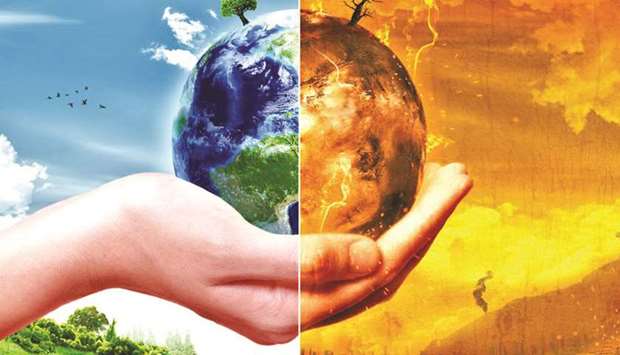
By Ghanim al-Sulaiti
Human-produced pollution is causing climate change that is dangerous now and will become much more dangerous in the future. It is real and it is already happening. Human-caused climate change has already been proven to increase the risk of floods and extreme rainfall, heatwaves and wildfires with implications for humans, animals and the environment.
More cities have recently declared ‘climate emergencies’, including Manchester, Paris, Cologne, Sydney and the biggest city yet to join the movement, New York. Here in Qatar, our country is one of the few that emits more carbon dioxide per person than any country in the world — which is a problem as the world tries to combat in climate change and avoid challenges ranging from more extreme weather to sea level rise.
However, Qatar is eager to demonstrate that the country is committed to protecting the environment and reducing carbon footprint. In line with Qatar National Vision 2030, Qatar aims to reduce its dependence on fossil fuels, reduce energy consumption and the nation’s carbon footprint.
New areas of Doha such as Msheireb is an example of how Qatar — and the rest of the Middle East — can cut emissions to help fight climate change, by using fewer fossil fuels and less water. More than 100 buildings in Msheireb, including apartments, offices, hotels, a shopping mall and a school are fitted with solar panels, solar water heaters and overhangs designed to shade the surrounding areas and walkways.
Similarly, the new Lusail City is an example of a project with sustainability at heart. Lusail is being designed with plenty of trees and green spaces, perfect to boost Qatar’s ecosystem. But climate change is a global problem, and action by many countries across the world, including the entire Middle East region, will be needed to successfully address the problem.
Sea level is rising at the fastest rate in 3,000 years, an average three millimetres per year — and as a peninsular nation, this should be of a concern to us all.
Climate change and increase in temperatures is making Qatar even more vulnerable to the lack of water and food insecurity. Every single drop of water that is used in Qatar currently needs to be desalinated.
Going forward, we need to ensure that as individuals, as families, as households or as companies — we have climate change on our minds each day as a reminder of the threat our planet is facing. Coming together, discussing, educating and changing our lifestyle can have a greater impact than you might imagine. But we need to hurry up, as time is running out.
* The author is an expert in vegan wellbeing and health. Instagram handle: @Ghanim92

